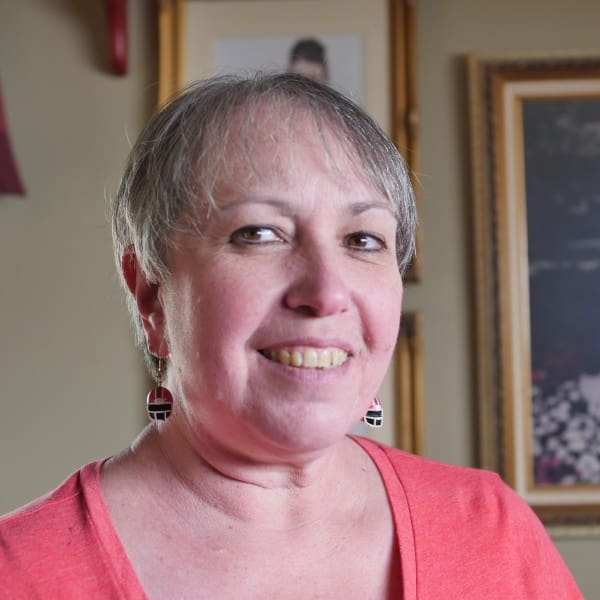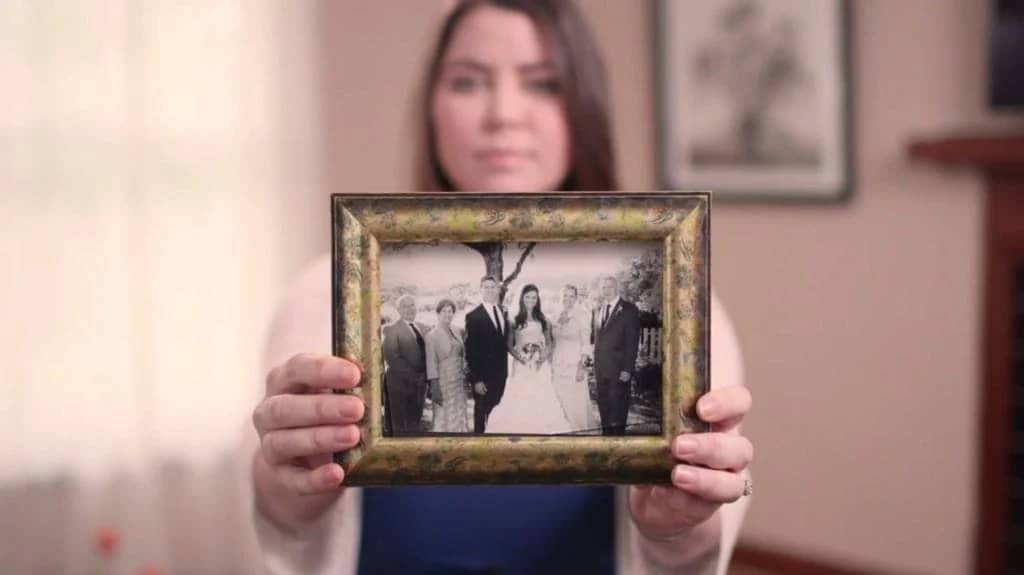
Jennifer Milich shared her story in February of 2020. She died from metastatic kidney cancer on March 4, 2022. Jennifer experienced the end she feared — a slow death, in a facility for months, often unconscious, often suffering. To learn more about Jennifer’s story, click here to watch her Zoom conversation with New York Assemblymember Karines Reyes.
I am a lifelong resident of Buffalo, New York, and I want New York state to pass a medical aid-in-dying bill for terminally ill people, like myself. Affording a dying person a peaceful option at the end of life is the most important act a physician can do for their patients.
In March of 2019, I was diagnosed with renal cell carcinoma, a rare and aggressive form of kidney cancer. Chemo and radiation do not work for my cancer, so the only option forward was to remove one of my kidneys in hope of excising the tumor. Six months later, in December 2019, I was diagnosed with metastatic kidney cancer and was informed that my diagnosis is terminal. I started to receive hospice services in the Fall of 2020, but hospice has been unable to ease my suffering.
If you look at me, you would not know I have cancer. If only people understood how I felt or what was going on inside. In a way, it’s a curse because it feels like I’m fighting an uphill battle because it’s like, “It doesn’t always look like what you think. This is also how cancer looks.”
I suffer constantly from extreme fatigue, nausea and pain. I’ve lost vision in one of my eyes entirely, and I can barely see without becoming dizzy. The fatigue is so bad that if I don’t lay down, it feels like I’ll fall down. I tire very easily and spend a lot of time in bed. Just going out to lunch takes all my energy. Usually, I can only last for two hours doing any given activity and then I have to lay down for a couple of hours to recover. Along with this, I can spend the entire day feeling nauseous or in devastating pain. At this point, I am unable to leave my bed. This is not living; this is just suffering.
When I was physically able to do so, I thought about moving to another state to access medical aid in dying, but I have obligations here. I am a sister, a mother and a Big Mamma to four grandchildren, and an Honorary Big Mamma to many local children. I shouldn’t have to uproot my life. We’re supposed to be the United States, not state by state. My ZIP code shouldn’t determine my options at the end of life.
I desperately want to live, to be here for my son, daughter and grandchildren. My death, however, is imminent, and I want to ensure it’s as peaceful as possible, not just for myself but for my loved ones. I don’t have time for politics. My concern isn’t politics. It’s about peace at the end of life. I know from being the person sitting with my mom in a hospital room for 10-12 hours a day how traumatic the dying process can be. She deserved better. I don’t want that for me. I don’t want to linger in pain.
Having the option of medical aid in dying would mean that my family wouldn’t have to suffer watching me struggle as my body shuts down.
I don’t think you can fully understand how somebody feels unless you’re in the situation. You should have a choice. We have a choice about so many things. What works for one person may not work for another — that’s why options are important. A person has to choose what is right and most comforting for their mind, heart and soul.
We are not a piece of paper on someone’s desk. We are not a file or just a name. I am a living human being making conscious decisions for myself, dealing with a diagnosis that no one should have to deal with. I should have the right to this humane option.

Nothing advances our common cause of improving end-of-life care like real stories. Inspire others and drive change by sharing your story today.
Mail contributions directly to:
Compassion & Choices Gift Processing Center
PO Box 485
Etna, NH 03750